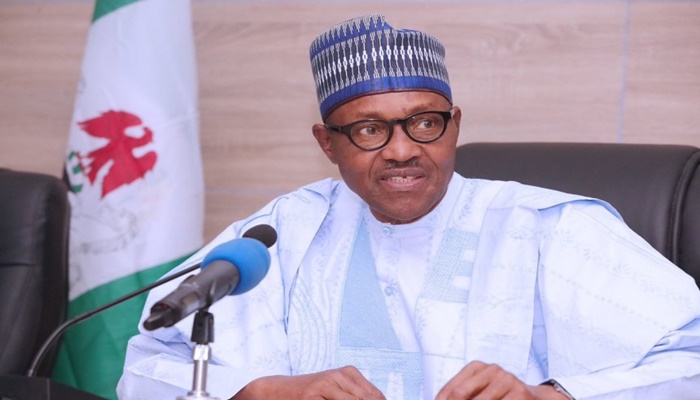Buhari tasks manufacturers on collective industrialisation development strategies

President Muhammadu Buhari on Tuesday tasked Nigerian manufacturers on the need to create collective development strategies that would boost industrialisation in the country.
Buhari gave the advice at the 2019 Exhibition and the 47th Annual General Meeting (AGM) of the Manufacturers Association of Nigeria (MAN) in Lagos.
The News Agency of Nigeria (NAN) reports that the theme of the AGM is “Improving the value-chain in the Manufacturing Sector for competitiveness and job creation”
Buhari, who was represented by the Minister of Industry, Trade and Investments, Mr Adeniyi Adebayo, said that the sector was a key driver in the economic development of any nation.
He insisted that developing the sustainable industrial environment would require collective efforts, adding that his administration would continue to reposition the manufacturing industry for effective performance.
He also commended MAN for its contributions toward economic development of the country through their manufactured goods.
Buahri also urged the manufacturers to continue to discover and develop strategies that would fully make Nigeria an industrialised nation.
He assured them that the ‘Next Level’ agenda of his administration would consolidate the gains and achievements of the first tenure as well as expand the national frontier for more economic growth and development.
“You will believe with me that the last four years have been tough; this administration is working toward repositioning the economy through the diversification policy.
“The ‘Next Level’ Agenda of the government will continue to support the manufacturing industry and protect relevant manufacturers to ensure that they are not saddled with those goods that can be produced locally.
“We have the resources and manpower to produce most of the needed goods in the country and with the manufacturers’ collaboration, the nation’s productivity will be improved,” he said.
Prof. Benedict Oramah, President and Chairman of the Board of Directors, Afreximbank, announced a donation of 500 million dollars to MAN from the bank.
Oramah said the donation by the Cairo-based bank was targeted at encouraging and enhancing the operations of the manufacturers.
He said that Afreximbank, as a multilateral trade finance institution, has the mandate of promoting trade in Africa, saying it was on that principle that the bank made the donation to MAN.
Earlier, Mr Mansur Ahmed, the President of MAN, had commended Buhari’s administration on its economic diversification and agricultural transformation.
Ahmed pleaded that the government should continue with its efforts of creating a conducive environment for manufacturers to thrive.
He, however, listed some of the challenges hindering effective operations of the manufacturers.
“The state of our infrastructure has deeply eroded the competitiveness of the sector.
“The supply of electricity, access to our ports and their low operating efficiencies, the poor condition of most of our highways and waterways and the absence of a credible rail network.
“All these constitute impediments to the operating efficiencies of our manufacturing establishment; inducing high costs of production and distribution and rendering our manufactured goods uncompetitive,” he said.
Ahmed also commended the President of Afreximbank, Prof. Benedict Oramah, for the 500 million dollars donation to the Nigerian manufacturers.
“It will help to adjust operations and provide training to help manufacturers take advantage of the African Continental Free Trade Agreement (AfCFTA)
“All of us are afraid and concerned but other countries are afraid of Nigeria; the problem is the lack of awareness of what AfCFTA is and what opportunities are available there.
“It is an exciting opportunity to Nigeria; it is a turnaround for the Nigerian manufacturing sector.
“But for AfCFTA to succeed, we must develop policies that will promote African production among other benefits. Africa, therefore, needs not only a trade policy but also a continental manufacturing agenda, ” he said.
-NAN






